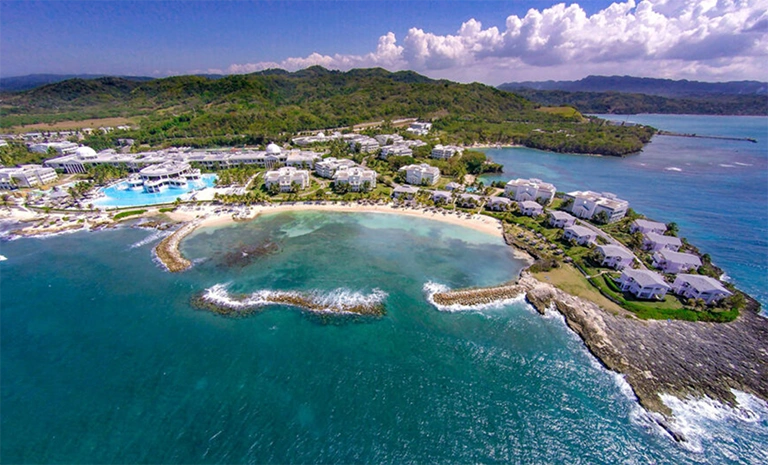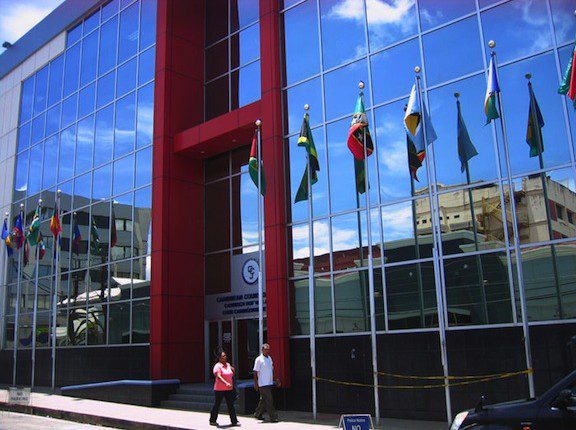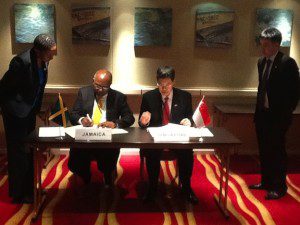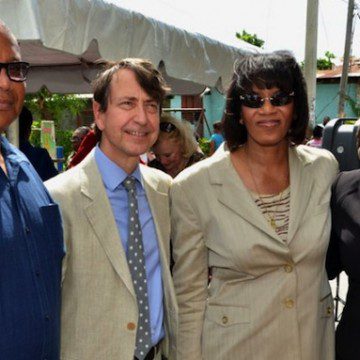Jamaica’s Big Risk

By Dennis Chung
CJ Contributor
WHILE walking, or cycling, I often see people who ask me many questions relating to the economy, finances, or issues about my second book. In the last few weeks, though, I notice that the majority of questions have focused on the difficulty people are facing in the economy.
My own view is that with the fiscal adjustments, which we were forced to do under the IMF agreement and that Finance Minister Peter Phillips and his team have been seeing through, I we will have the necessary reforms to the economy and market that we have needed for a long time.
This adjustment is also buoyed by the Economic Programme Oversight Committee (EPOC), which was a very good initiative put in place by Phillips. The truth is that the EPOC initiative may have been the most important element in the agreement, as it brings a certain amount of confidence and oversight to the economic programme, which has never existed before, and Phillips must be congratulated for that.
This in my view is the only time I personally have any confidence in an IMF programme being implemented by the Jamaican government.
In answering the many questions on the economy, I tell people that we will see negligible growth towards the end of 2013, but I expect that growth will improve in 2014.
My reason for saying that is primarily that I believe the biggest factor for lack of growth, after the IMF agreement, has been lack of confidence, and uncertainty.
And this was borne out in the last confidence numbers, which showed the dismal perception and uncertain expectation of what will happen in the economy.
As a result, capital naturally moved from the riskiness of investments in the Jamaican economy, to the safety of the US dollar. It is for this reason that the dollar has kept sliding, more than any scarcity of the US dollar.
So no matter how much we try to address the sliding dollar with monetary policy attempts to tighten liquidity, it will not stem the slide of the dollar.
The reason why I say that the consistent dollar slide has more to do with confidence and uncertainty more than the shortage of US dollars is as follows.
The fact is that we have always had a balance of payments (BOP) shortage, and even with the loans that we have had, we still were not able to adequately cover the BOP deficit.
Even so, we were still able to hold the exchange rate and interest rates relatively stable.
Some may say that this was facilitated by the higher interest rates and increasing debt. And to some extent, yes, but the fact is that much of the debt was in local currency, which would not help the BOP problem, and the main reason for the debt was not for BOP support but rather to close the fiscal deficit.
It is true that relatively higher J$, to US$, interest rates would have caused a preference for J$ instruments. Today we have J$ rates moving higher, and we also have an improving fiscal and BOP situation, but still we have a consistent slide in the exchange rate, and I highlight consistent because this is what I am saying is caused by a lack of confidence, and uncertainty.
I also am of the view that as confidence and certainty creep back into the system with each passing of the IMF test, then we will start to see that reversal from holding US$ assets to J$ investments.
It is, however, important for this positive fiscal adjustment to be accompanied by transparency and equity in governance, and importantly an improvement in the security situation. If these situations do not improve, then we are not going to be able to maximize the benefits from the fiscal, and legislative, adjustments under the economic programme.
Even if we assume, though, that we see an improvement in the governance and security (which of necessity must include improved relations between the police and citizens), there is still one big risk that the country faces going forward, and it is growth that is restricted to a certain group of people, thus increasing the risk of a decreased middle class, which is necessary for sustainable development.
This has nothing to do with any dictates under the economic programme (note: I have refrained from calling it the IMF programme), but rather, it is a wider social and cultural problem that we have.
The fact is that while greater economic growth could see a decrease in the unemployment rate, from the current 16 per cent, the quality of the employment created may not create the needed middle class.
In fact, many of the jobs could be casual jobs, which are seasonal or low-paying. The reason is that there is a critical mass of persons in the country, particularly among the younger labour force, that is not properly educated/trained and/or productive enough to face a more market-driven and competitive environment.
This is the big challenge (and risk) that the Jamaican economy faces, and which, quite frankly, we have not done enough to deal with. If you think about it, as investors get more confident, then what you will find is that they will start shifting from US$ assets to J$ investments, which will necessitate a sell of the US$ currency to the market. The exchange rate will not see any great revaluation, if any, but at the current exchange rate, the ROI is minimal compared to investment opportunities, in an economy where confidence is strong.
The problem is, because of the low productivity levels of this critical mass of the labour force, quality re-employment of the unemployed is not going to be maximized.
The challenge the government faces is how to transition this unproductive work force to a globally competitive one. It is a task that must be undertaken by the Jamaica Productivity Centre, and HEART in particular, and must receive the support of the ministries of industry, education, labour, and finance.
A failure to address this problem could result in some growth returning to the economy, but without the mass benefit needed. This would serve to stymie the growth of the middle class, which would not be a sustainable model for development.
Dennis Chung is a chartered accountant and is currently Vice President of the Institute of Chartered Accountants of Jamaica. He has written two books: Charting Jamaica’s Economic and Social Development – 2009; and Achieving Life’s Equilibrium – balancing health, wealth, and happiness for optimal living – 2012. Both books are available at Amazon in both digital and paperback format. His blog isdcjottings.blogspot.com. He can be reached at drachung@gmail.com.







